Ni Resist Alloy
LK Die Casting Machine / 2024-09-11 16:59:23
2024-09-11 by Cherry
In modern industrial manufacturing, the die-casting machine
is the core equipment for producing high-precision metal
parts. With the continuous advancement of industrial technology,
the development of materials science has also brought more
options for die casting process.
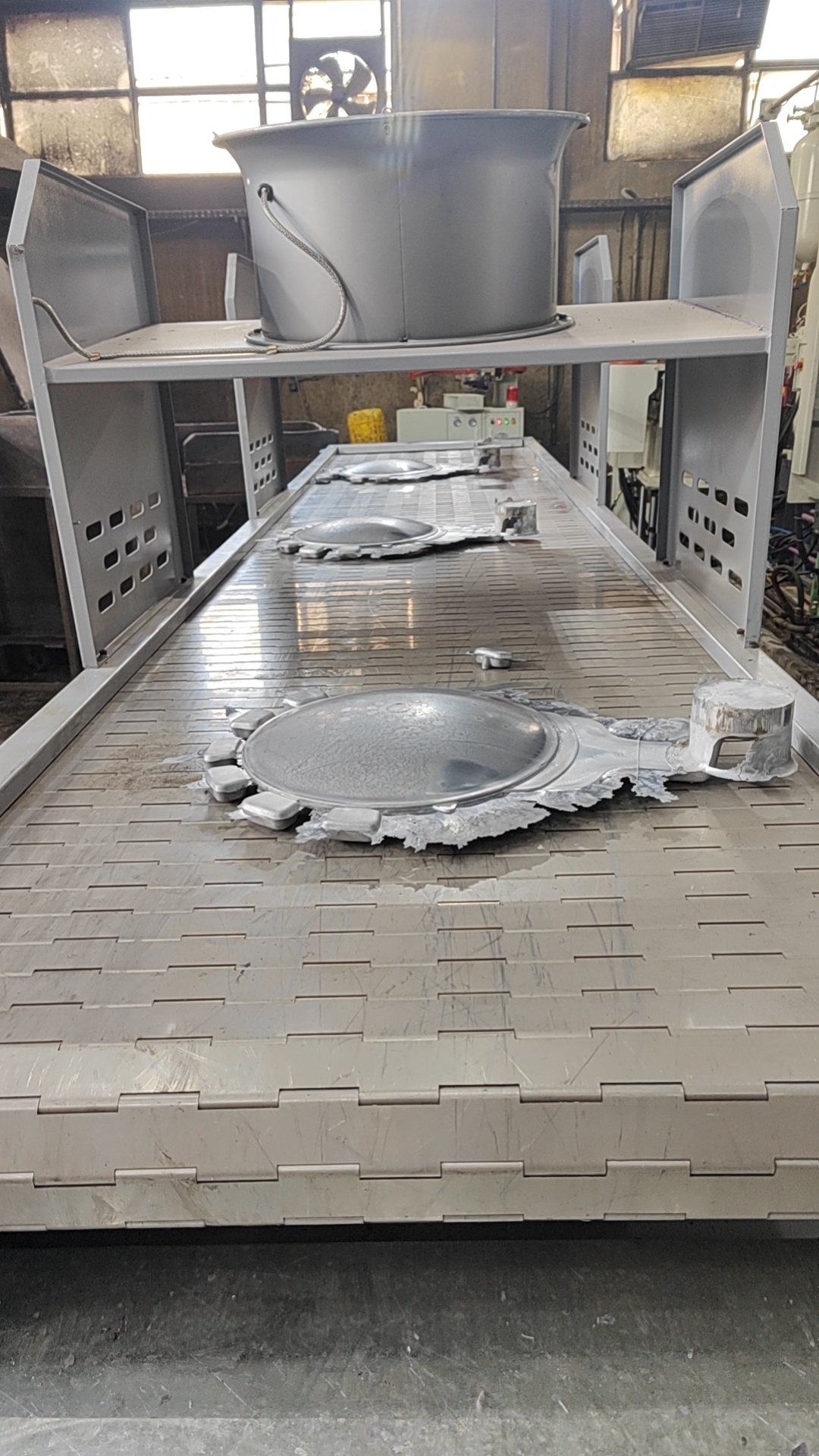
Among them, Ni-Resist Alloy has gradually
become an important material in the manufacture of die-casting
machine-related parts and molds due to their excellent
corrosion resistance and mechanical properties.
This article will deeply explore the relationship between
nickel anti-corrosion alloy and die-casting machine, analyze
the application of this material in die casting process
and the advantages it brings to the entire production process.
What is Ni-Resist Alloy?
Nickel anti-corrosion alloy is an alloy based on nickel with
added elements such as chromium, iron, and molybdenum.
It has extremely high corrosion resistance and oxidation resistance,
especially in harsh environments.
These alloys are widely used on occasions that need to
withstand high temperatures, strong acids, strong alkalis,
and other corrosive media, such as chemical, energy, aerospace
and other fields.
Common Ni-Resist Alloy include Inconel, Monel, and Hastelloy
It has excellent corrosion resistance, which is a big advantage
in the die-casting environment. When the die-casting machine
is working, it will face various complex situations, such as
high temperature, high pressure, and possible contact with
various chemicals.
Ni-Resist Alloycan remain stable in such a harsh environment
and is not easily corroded, which provides a guarantee for
the long-term stable operation of the die-casting machine.
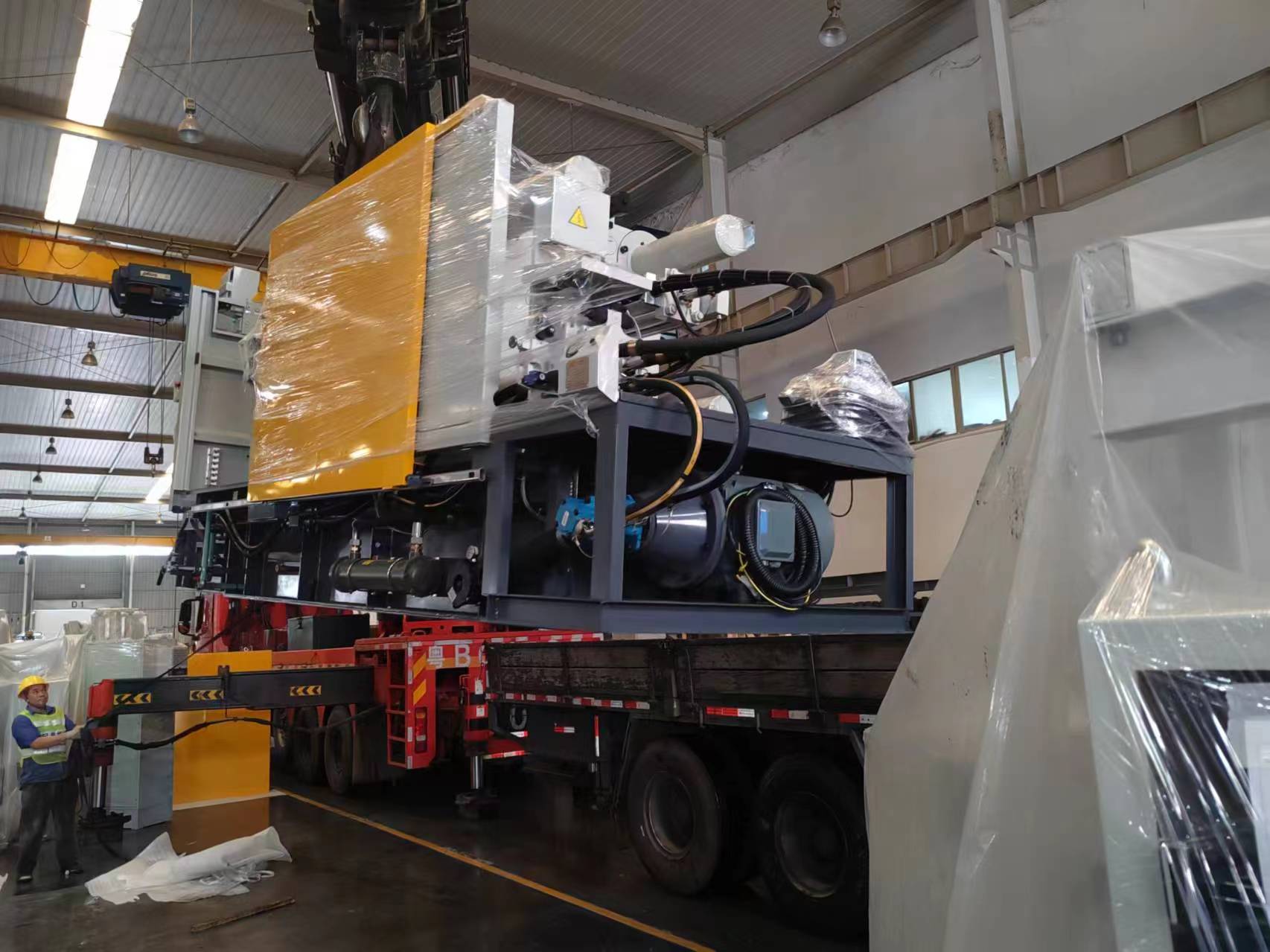
The main characteristics of Ni-Resist Alloy are as follows:
1. Excellent corrosion resistance: It can resist corrosion
from various acids, alkalis, and salt solutions, especially
under high temperature and high-pressure conditions.
2. High-temperature stability: Ni-Resist Alloy can maintain
their mechanical strength and oxidation resistance at extremely
high temperatures.
3. Combination of strength and toughness: Even at high temperatures,
nickel anti-corrosion alloys can provide sufficient strength
while having high toughness and wear resistance.
The relationship between Ni-Resist Alloy and die-casting machine
The die-casting machine is a mechanical equipment used to
produce high-precision metal parts, usually using light
alloys such as aluminum, zinc, and magnesium as the main
casting materials.
However, in the die-casting process, some key components
of the die-casting machine needs to withstand high temperatures,
high pressure and corrosive media, so it is crucial to
choose appropriate materials to manufacture these components.
When the die-casting machine is working, it will face various
complex situations, such as high temperature, high pressure,
and possible contact with various chemicals.
Ni-resist alloy can remain stable in such a harsh environment
due to its excellent corrosion resistance and high-temperature
performance, and is not easily corroded, which provides
a guarantee for the long-term stable operation of the die-casting
machine.
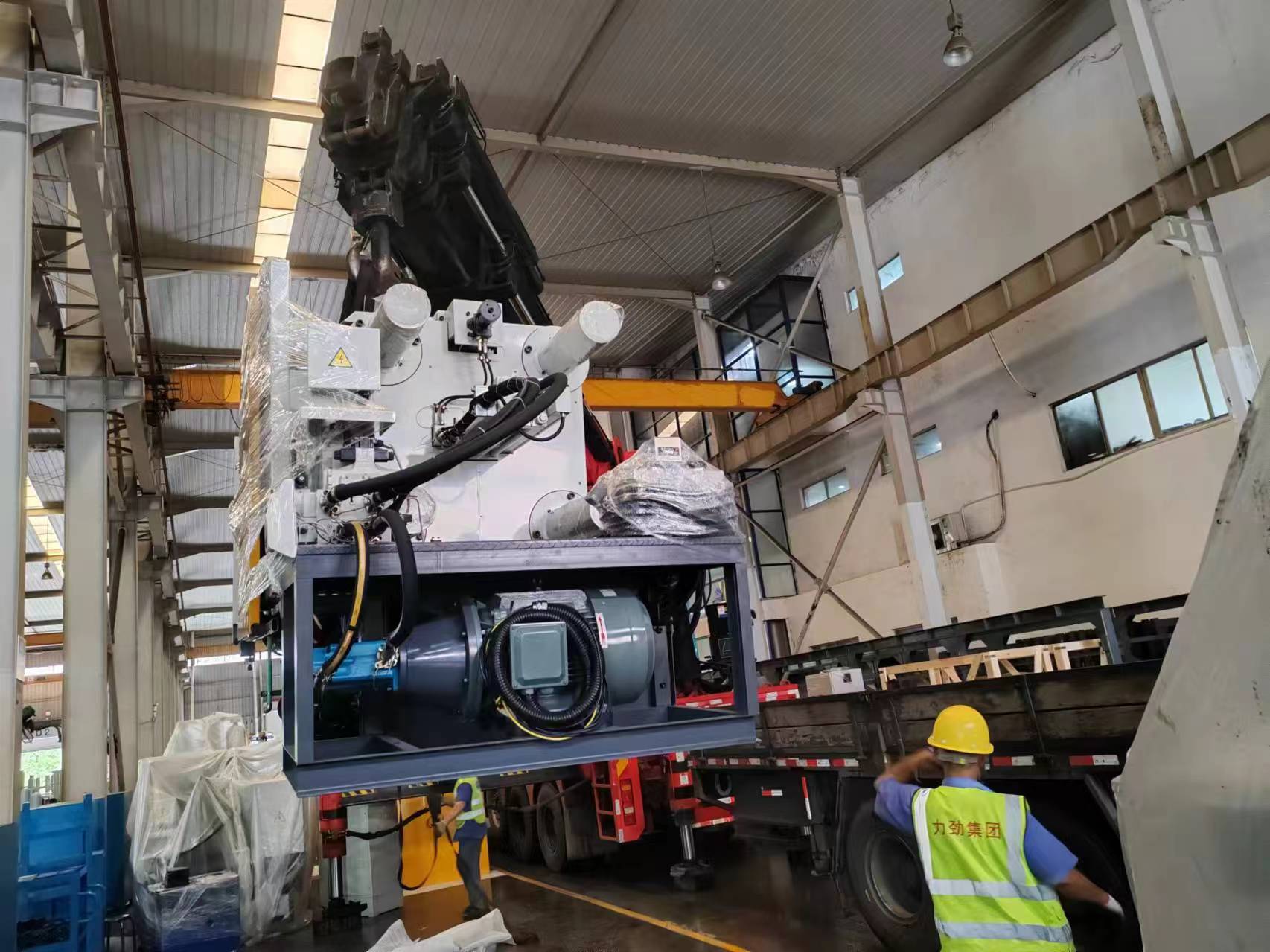
It has gradually become the first choice for some key parts
and mold materials in the die-casting machine. The following
is the specific application of nickel anti-corrosion alloy
in the die-casting machine and its relationship with the
die-casting process:
1. Die-casting mold material
From the perspective of the die-casting machine mold, nickel
anti-corrosion alloy has a lot to do. The mold is a key component
of the die-casting machine, and its quality directly affects
the quality of the die-casting product and the production
efficiency of the die-casting machine.
The mold made of nickel anti-corrosion alloy can withstand
repeated high temperature and high-pressure impacts during
the die-casting process, and due to its corrosion resistance,
the service life of the mold is greatly extended.
This means that the die-casting machine can maintain an
efficient production state for a long time, reducing the
trouble and cost of frequent mold replacement.
The die-casting mold is the core part of the die-casting
process and the quality of the mold directly affects the
precision, surface quality, and production efficiency of
the product.
Traditional mold materials are mainly tool steel or other
high-strength alloys, but the performance of these materials
will gradually decline in high-temperature and corrosive
environments.
Nickel anti-corrosion alloys, such as Inconel alloys, have
extremely high heat resistance and corrosion resistance can
maintain strength at high temperatures, and are not easily
corroded by corrosive elements in die-casting materials.
Using nickel anti-corrosion alloys to make molds in die-casting
machines can extend the service life of the molds, and
reduce mold failures caused by corrosion and thermal fatigue,
thereby improving production efficiency and reducing downtime
and maintenance costs.
2. High-temperature components of die-casting machines
Let's take a look at the internal channels and key mechanical
structural components of the die-casting machine. In some
die-casting machines, the internal channels need to transmit
various high-temperature and high-pressure liquids or gases.
If the materials of these channels are not corrosion-resistant,
they are easily corroded by corrosive substances generated during
the die-casting process, causing channel blockage or leakage.
The channel components are made of nickel anti-corrosion alloys
can effectively avoid these problems and ensure the stable
transmission of fluids inside the die-casting machine.
The working environment of the die-casting machine is usually
very harsh, especially under high-temperature and high-pressure
operating conditions, traditional metal materials may age or
corrode rapidly.
Nickel anti-corrosion alloys are often used to manufacture
high-temperature components in die-casting machines, such
as heating elements and key parts in injection systems,
due to their stability and corrosion resistance at high
temperatures.
These components are usually in contact with molten metal
and are also subject to extremely high pressure. The use of
nickel anti-corrosion alloys can not only improve the durability
of these components but also prevent mutual contamination
between metals, ensuring the consistency and stability of
casting quality.
Nickel anti-corrosion alloys also play an important role
in some moving parts of die-casting machines. During high-speed
movement, these parts not only have to withstand mechanical
wear, but also face possible corrosive environments.
The high strength and corrosion resistance of nickel anti-corrosion
alloys enable them to maintain good performance under such
complex working conditions, reducing component damage and
maintenance frequency.
Application in hydraulic systems and cooling systems
The hydraulic system and cooling system of the die-casting
machines are also important components. These systems usually
need to work under extreme temperatures and high pressures
and may be exposed to corrosive coolants or lubricants.
The application of nickel anti-corrosion alloys in these
systems are very common, especially for the manufacture of
key components such as valves, pipes, and joints.
By using nickel anti-corrosion alloys, these parts can be
prevented from damage and leakage caused by corrosion or
oxidation, thereby ensuring the long-term stable operation
of the hydraulic and cooling systems and improving the
overall reliability of the die-casting machine.
Advantages of repairing and replacing parts
From the perspective of the overall operating efficiency
of the die-casting machine, the application of nickel
anti-corrosion alloys are crucial.
The operating efficiency of the die-casting machine
It depends on the coordinated work of various components.
If some parts fail due to corrosion, the die-casting
machine will be shut down for maintenance, which will
seriously affect the production schedule. Nickel anti-corrosion
alloys can reduce the risk of such failures caused by
corrosion, thereby ensuring the efficient operation of
the die-casting machine.
During the maintenance and maintenance of the die-casting
machine, nickel anti-corrosion alloy parts are also
relatively easy to handle. Due to its corrosion resistance,
during the cleaning and inspection process, it does not
require complex anti-corrosion treatment like some other
easily corroded materials. This not only saves maintenance
time but also reduces maintenance costs.
Another key advantage of nickel anti-corrosion alloys is
their long service life and wear resistance. This means
that the frequency of repair and replacement will be greatly
reduced when die-casting machine parts made of nickel-based
alloys are used. Especially in long production cycles, it
can significantly reduce downtime and improve production
efficiency.
In addition, the high strength and stability of nickel
anti-corrosion alloy materials at high temperatures make
them more resistant to fatigue and cracking during processing
and handling, which is one of the important reasons why
they are widely used in the manufacture of die-casting machine
parts.
The impact of nickel anti-corrosion alloy on die-casting
process
Nickel anti-corrosion alloy not only improves the performance
of die-casting machines, but also has a positive impact
on the entire die-casting process.
1. Improve the quality of castings
When using nickel anti-corrosion alloy to manufacture molds
or key components, the surface quality of castings will
be greatly improved due to its excellent corrosion resistance
and oxidation resistance. Traditional mold materials are prone
to surface corrosion or thermal cracks after long-term use,
which will cause surface defects of castings.
The use of nickel anti-corrosion alloys can effectively avoid
these problems, so that the accuracy and surface finish of
the final product is guaranteed.
2. Extend the service life of equipment
The use of nickel anti-corrosion alloys not only improves
the durability of molds and components but also extends
the service life of the entire die-casting machine.
The long-term stable operation of the equipment reduces
the downtime caused by frequent replacement of parts and
improves production efficiency.
3. Reduce maintenance costs
Since nickel anti-corrosion alloys have higher corrosion
resistance and wear resistance, their application in
die-casting machines can significantly reduce the need
for daily maintenance. Longer maintenance cycles and less
maintenance work helps companies save a lot of maintenance
costs in long-term use.
4. Optimize energy consumption
The stability of nickel anti-corrosion alloys in high-temperature
environments means that die-casting machines can maintain
high thermal efficiency during production. This not only
improves the energy utilization of the die-casting process
but also reduces additional energy waste, which helps
to achieve more environmentally friendly production.
Challenges of the application of nickel anti-corrosion
alloys in die-casting machines
1. Its cost is relatively high
This is a factor that needs to be considered for some
die-casting companies with limited budgets. In this case,
a trade-off between cost and performance is needed.
Should you choose a material with a lower price but may
need to be replaced more frequently, or choose a nickel
anti-corrosion alloy to ensure long-term stable operation
of the die-casting machine? This requires making decisions
based on specific production needs and economic conditions.
2. The processing technology of nickel anti-corrosion
alloy also has certain requirements
When making it into die-casting machine parts, appropriate
processing methods need to be adopted to ensure the quality
and performance of the parts. This requires die-casting
machine manufacturers to have corresponding processing technology
and equipment, otherwise it may affect the application effect
of nickel anti-corrosion alloy in die-casting machines.
3. From the perspective of industry development, the relationship
between nickel anti-corrosion alloy and die-casting machine
is mutually reinforcing
With the continuous development of die-casting machine technology,
the performance requirements of materials are getting higher
and higher, which has promoted the research development
and improvement of nickel anti-corrosion alloy.
The continuous improvement of the performance of nickel
anti-corrosion alloy has provided more possibilities for
the performance improvement of die-casting machines.
4. In terms of environmental protection, nickel anti-corrosion
alloy also has its advantages
Due to its long service life, the frequency of component
replacement is reduced, thereby reducing the generation of
waste components. Moreover, in terms of recycling, nickel
anti-corrosion alloy also has a certain value, which can
reduce the waste of resources and pollution to the environment
through recycling and reprocessing.
5. In the design stage of the die-casting machine, the application
of nickel anti-corrosion alloy should be fully considered
Designers need to reasonably choose whether to use nickel
anti-corrosion alloy and on which parts to use it according
to factors such as the working environment, production
requirements, and cost budget of the die-casting machine.
This requires designers to have an in-depth understanding
of the performance of nickel anti-corrosion alloys, and also
have a clear understanding of the overall structure and working
principle of the die-casting machine.
6. In the actual production process, we also need to continuously
explore new application scenarios of nickel anti-corrosion
alloys in die-casting machines
Perhaps in some special die-casting processes, nickel anti-corrosion
alloys can play an unexpected role. For example, in some high-precision
die-casting processes, the stability and corrosion resistance of
nickel anti-corrosion alloys may provide strong support for the
improvement of product quality.
7. With the continuous advancement of science and technology,
the automation and intelligence of die-casting machines are
getting higher and higher
Under this new development trend, nickel anti-corrosion alloys
also need to continue to adapt. For example, in components
related to intelligent control systems, nickel anti-corrosion
alloys need to have better electromagnetic compatibility and
other properties to ensure that the intelligent system
of the die-casting machine can operate stably.
The relationship between nickel anti-corrosion alloy and
die-casting machine is complex and close. It is not just a
simple combination of materials and equipment, but also a
relationship of mutual influence and mutual promotion in
the die-casting production process. We cannot only see the
advantages of nickel anti-corrosion alloy in die-casting
machine, but ignore the challenges of cost and processing
technology that it may bring.
In today's competitive industrial market, die-casting enterprises
must pay attention to the relationship between nickel anti-corrosion
alloy and die-casting machines if they want to stand out among many
competitors. By rationally applying nickel anti-corrosion alloy,
optimizing the design and operation of die-casting machines,
improving production efficiency and product quality, reducing
costs and maintenance expenses, and thus occupying a place in
the market.
Future Outlook
In the long run, nickel anti-corrosion alloy has broad
application prospects in the field of die-casting machines.
With the continuous development of materials science, the
performance of nickel anti-corrosion alloy is expected to be
further improved, and the cost may gradually decrease.
This will bring more opportunities for the development of
die-casting machine.
When exploring the relationship between nickel anti-corrosion
alloy and die-casting machine, we must maintain an open mind
and innovative spirit. Constantly try new application methods
and processing techniques, combined with the latest technological
development of die-casting machines, to promote the application
of nickel anti-corrosion alloys in the field of die-casting
machines to a new height.
The development of die-casting machines is inseparable from
the support of materials, and nickel anti-corrosion alloys,
as a material with unique properties, plays an irreplaceable
role in die-casting machines.
We must deeply study the relationship between them so that
nickel anti-corrosion alloys can better serve die-casting
machines and create greater value for industrial production.
In actual work, we will encounter various problems, such as
the compatibility of nickel anti-corrosion alloys with other
materials, performance under extreme working conditions, etc.
These problems need to be solved through continuous practice
and research.
There is a close connection between nickel anti-corrosion
alloys and die-casting machines. From the various components
of the die-casting machine to the overall operation, from the
design stage to the production process, from cost control to
industry development, we need to take the relationship between
them seriously. Only in this way can we give full play to the
advantages of nickel anti-corrosion alloys and let the die-casting
machine plays the greatest efficiency in production.
In future development, we have reason to believe that the application
of nickel anti-corrosion alloys in the field of die-casting
machines will become more and more extensive. With the in-depth
research and development of its performance and the continuous
innovation of die-casting machine technology, the relationship
between them will become closer.
Whether it is to improve the reliability of die-casting machines,
extend their service life, or improve production efficiency
and reduce costs, nickel anti-corrosion alloys will play
an important role.
We should actively explore and grasp the relationship between
nickel anti-corrosion alloys and die-casting machines so
that the two can cooperate in industrial
production and bring more convenience and value to our
production and life.
In this process, we need to continue to learn and accumulate
experience, and improve our understanding of nickel anti-corrosion
alloys and die-casting machines to better cope with various
challenges and opportunities.
As important equipment for industrial production, the development
of die-casting machines is related to the progress of the entire
industrial field. As one of the important materials for die-casting
machines, the application, and development of nickel anti-corrosion
alloys have a profound impact on the performance and quality
of die-casting machines.
We must fully realize this, think about and explore the relationship
between nickel anti-corrosion alloys and die-casting machines
from multiple angles, and contribute our strength to the development
of die-casting machines and the prosperity of industrial production.
In actual die-casting production, we may face different die-casting
product requirements and production environments. Some products
may have extremely high requirements for the corrosion resistance
of the die-casting machine, while others may have a higher
requirements for the strength and stability of the die-casting
machine. In this case, we need to flexibly adjust the application
of nickel anti-corrosion alloys in die-casting machines according
to the specific situation to meet different production needs.
At the same time, we should also pay attention to the long-term
performance of nickel anti-corrosion alloys in die-casting
machines. Although nickel anti-corrosion alloys have excellent
corrosion resistance, they may still be affected by some factors
during long-term use, such as high-temperature oxidation, mechanical
wear, etc.
We need to conduct in-depth research on these issues and
find effective solutions to ensure the long-term performance
of nickel anti-corrosion alloys in die-casting machines.
Long-term stable performance in the die-casting industry.
From a global perspective, die-casting companies in different
regions may have different understandings and application
levels of the relationship between nickel anti-corrosion alloys
and die-casting machines.
In some developed regions, due to the high technical level and
higher performance requirements for die-casting machines,
the application of nickel anti-corrosion alloys may be more
extensive and in-depth. In some developing regions, the application
of nickel anti-corrosion alloys may be in its initial stage
due to restrictions such as cost.
This requires us to strengthen technical exchanges and cooperation
to promote the balanced development of nickel anti-corrosion
alloys in the field of global die-casting machines.
The relationship between nickel anti-corrosion alloys and die-casting
machines are a topic worthy of our in-depth research and discussion.
We must constantly summarize experience from practice and explore
theoretically, nickel anti-corrosion alloys play a greater
role in the field of die-casting machines.
Nickel anti-corrosion alloys have great potential in terms
of improving the production efficiency of die-casting machines,
reducing costs, improving product quality, and protecting the
environment.
We must fully tap these potentials, make the relationship between
nickel anti-corrosion alloys and die-casting machines more
harmonious, and inject new vitality into the development of
industrial production.
In today's era, sustainable development has become an important
concept of industrial production. The application of nickel
anti-corrosion alloy in die-casting machines is in line with
this concept.
Its long life and recyclability reduce waste of resources
and damage to the environment, which is of great significance
to the sustainable development of the die-casting industry.
In the process of developing a die-casting machine technology
and applying nickel anti-corrosion alloys, we must always adhere
to the principle of sustainable development to make our industrial
production both efficient and environmentally friendly.
The future development of die-casting machines is full of infinite
possibilities and nickel anti-corrosion alloys will play an
important role in it.
We must take a positive attitude to meet future challenges and
opportunities, constantly exploring the new relationship between
nickel anti-corrosion alloys and die-casting machines, open up
new paths for the development of die-casting machines and make
greater contributions to the prosperity of industrial production.
In the process of exploring the relationship between nickel
anti-corrosion alloys and die-casting machines, we cannot
ignore some details. For example, in the installation and
commissioning of nickel anti-corrosion alloy parts, it is
necessary to strictly follow the operating specifications
to ensure the normal operation of the parts.
At the same time, when testing and maintaining nickel
anti-corrosion alloy parts, appropriate testing equipment
and methods should be used to find and solve problems in time.
Summary
The relationship between nickel anti-corrosion alloys and
die-casting machines can be said to complement each other.
The excellent performance of this alloy material makes it play
an important role in the manufacturing of key components of
die-casting machines and the die-casting process.
By using nickel anti-corrosion alloys, die-casting machines
can not only operate stably under high temperatures, high
pressure and corrosive environments, but also significantly
improve the quality of castings, extend the service life of
equipment, reduce maintenance costs, and optimize energy
consumption.
In the long run, the application of nickel anti-corrosion
alloys can not only improve the overall performance of
die-casting machines but also bring more innovation and development
potential to the die-casting process.
In modern manufacturing, choosing the right materials to optimize
the die-casting process has become the key to improving product
quality, reducing costs, and improving production efficiency.
Therefore, with the continuous advancement of nickel anti-corrosion
alloy technology, its relationship with die-casting machines
will become closer and occupy a more important position in
the future die-casting field.
In short, the relationship between nickel anti-corrosion alloys
and die-casting machines are multifaceted, complex, and crucial.
We need to deeply understand and grasp the relationship between
them from all aspects make full use of the advantages of nickel
anti-corrosion alloys in actual production, overcome possible
problems and challenges, and let die-casting machines better
serve industrial production with the help of nickel anti-corrosion
alloys.
Through this article, we hope to help companies or engineers
better understand the close relationship between nickel
anti-corrosion alloys and die-casting machines, and provide
valuable reference for the optimization of die-casting processes.
For more info, you can refer to:
https://www.tiktok.com/@lk_diecastingmachine/video/7405113006880820522
https://www.youtube.com/shorts/JLX410QV_kw
To learn further info about Die Casting Machines,
pls contact LK Die Casting Machine Authorized Official Agent
LK OFFICIAL AGENT OFFICE DCM
LK Die Casting Machine Authorized Official Agent for Egypt(EGY)
Saudi Arabia(ksa)
United Arab Emirates(UAE)
The Islamic Republic of Iran(Iran)
Qatar(QAT)
The State of Kuwait(Kuwait)
The Middle East
Address: 1. Industry Zone, South of Port Said Kebly, Cairo, Egypt
2. EX 14., EASTERN RING ROAD, AI RAYAN DISTRICT,
RIYADH, SAUDI ARABIA
Arabic Website: https://ae.zazdiecasting.com/
English Website: https://www.zazdiecasting.com/
Phone/WhatsApp/Wechat: 0086 13598704163
Mobile: +20 101 304 3317 +20 150 181 8310
Email: jack@zazmae.com ahmedmahmoud@zazmae.com
OTHER CONTENT
-
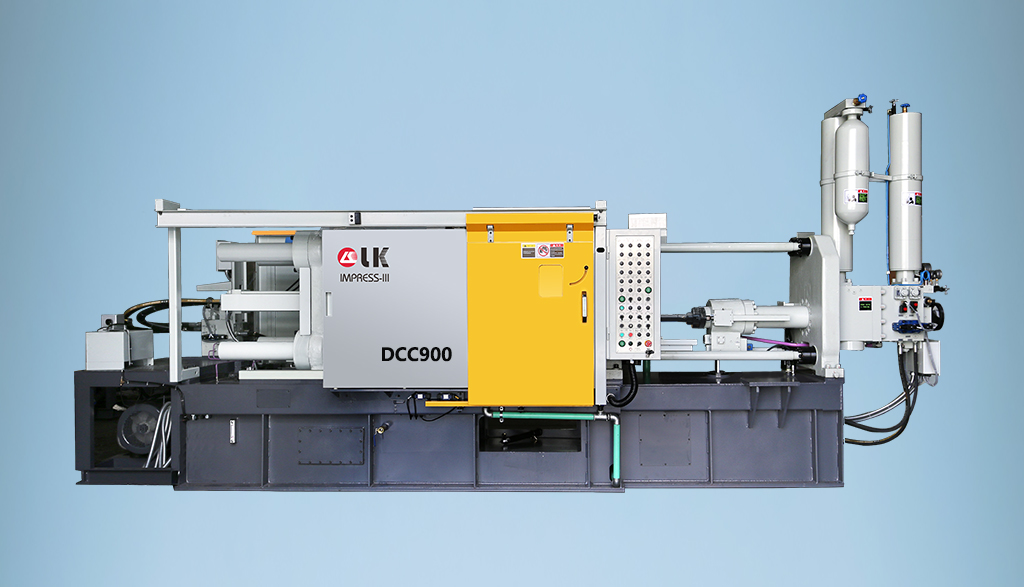
2024-09-19 14:16:15 LK Cold Chamber Die Casting Machine DCC900 Locking Force: 9000KN Die Height: 400-1000mm Space Between Tie Bars: 930x930mm Shot Weight: 13.5Kg Casting Area Max:2250c㎡
More -
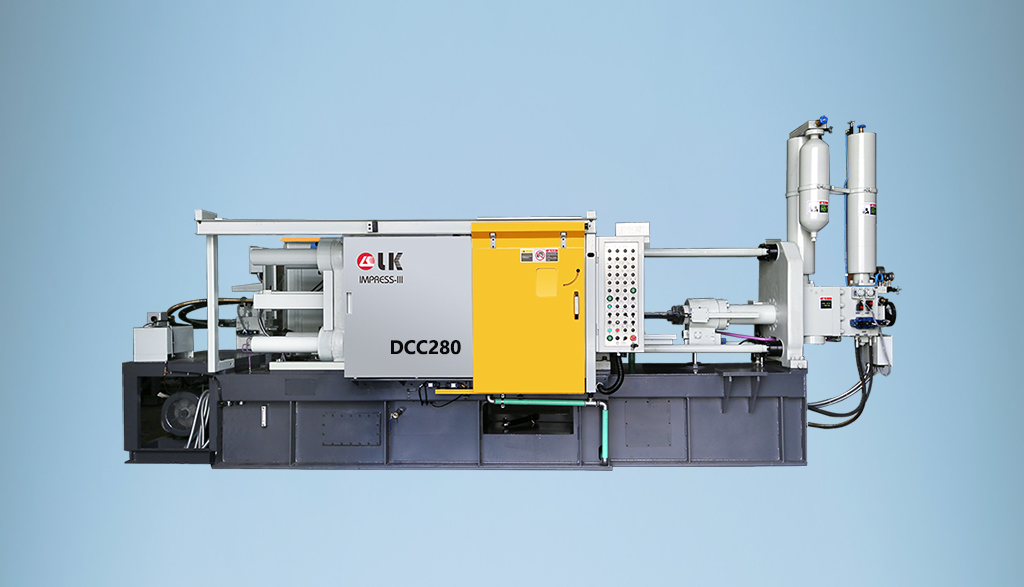
2024-09-19 14:11:06 LK Cold Chamber Die Casting Machine DCC280 Locking Force: 2800KN Die Height: 250-650mm Space Between Tie Bars: 560x560mm Shot Weight: 2.9Kg Casting Area Max:700c㎡
More -
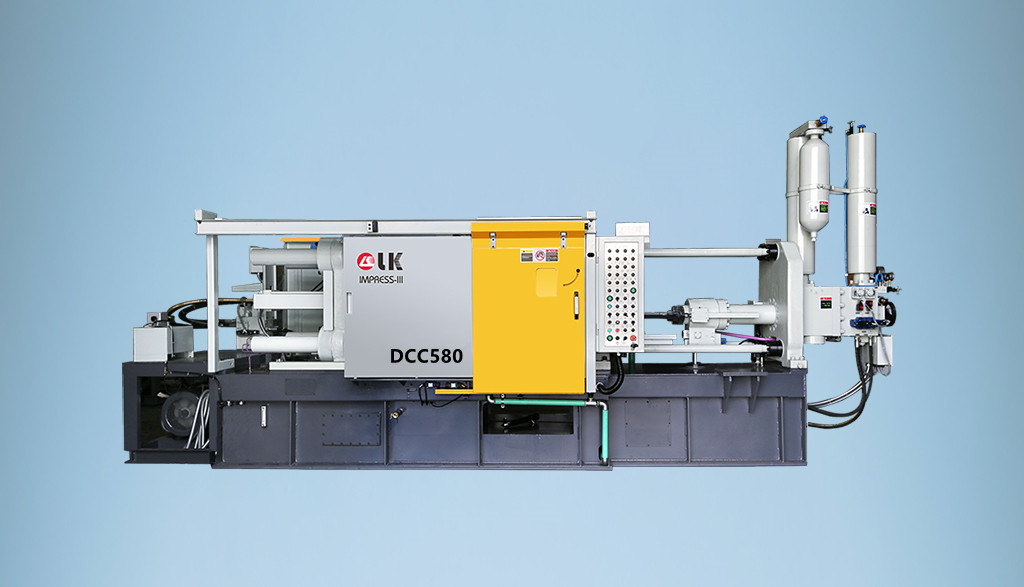
2024-09-19 10:23:07 LK Cold Chamber Die Casting Machine DCC580 Locking Force: 5000KN Die Heigh: 350-850mm Space Between Tie Bars: 760x760mm Shot Weight: 6.9Kg Casting Area Max:1250c㎡
More -
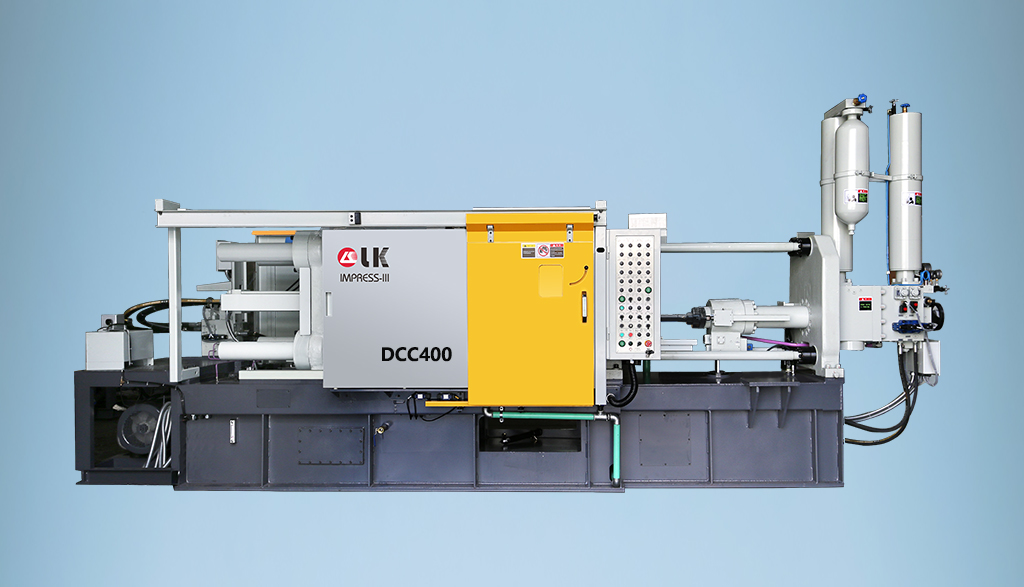
2024-09-19 10:11:20 LK Cold Chamber Die Casting Machine DCC400 Locking Force: 4000KN Die Height: 300-700mm Space Between Tie Bars: 669x669mm Shot Weight: 4.7Kg Casting Area Max:1000c㎡
More

